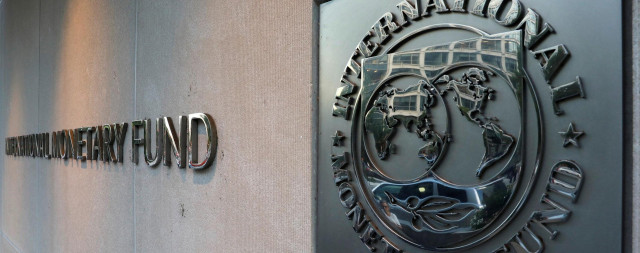IMF grills Pakistan on power rates
Fund assumes rupee will devalue to Rs329/$ or 18% by June next year

As consumers prepare to face three major electric shocks in July, the International Monetary Fund (IMF) has advised Pakistan to finalise the next increase in power tariffs based on further rupee devaluation instead of assuming the current stable value of the local currency.
The IMF’s ‘advice’ could further compound the problems of electricity consumers because the government has worked out next year’s up to Rs7 per unit electricity increase in rates based on a stable exchange rate, according to energy ministry sources.
The IMF raised the issue of exchange rate devaluation during a meeting with the National Electric Power Regulatory Authority (NEPRA), said the sources.
They stated that the IMF also questioned the incorrect electricity consumption assumptions used for the current fiscal year’s annual power tariff adjustments. The higher consumption estimates, subsequently proven wrong, resulted in a hefty increase in electricity bills due to monthly and quarterly tariff adjustments.
The sources said that Pakistani authorities apprised that the upcoming increases in electricity prices would overburden consumers due to multiple increases on account of monthly fuel adjustments, quarterly adjustments, and the upcoming big annual base tariff increase.
Pakistan has informed the IMF that electricity prices may skyrocket in July due to simultaneous adjustments on account of monthly, quarterly, and annual increases in tariffs.
NEPRA has also scheduled a hearing on the coming Thursday to determine the annual base tariff adjustment. The IMF team is in town until May 23rd to gauge the government’s readiness to undertake tough measures and approve the next budget before presenting it to the federal cabinet and Parliament.
Domestic consumers are already paying up to Rs62 per unit for electricity, significantly contributing to suppressed demand and shifting to alternate energy sources.
The sources said the Ministry of Energy faced tough questions over its incorrect and unrealistic estimates of electricity consumption during this fiscal year. It was also revealed during these discussions that NEPRA did not have any in-house capacity to work out assumptions and had to rely on whatever the Ministry of Energy shared with it.
It had assumed a 7% increase in electricity consumption for this fiscal year, which in fact dropped compared to the previous year. The wrong estimates led to a lesser increase in the annual base tariff in July last year but caused heavy increases in prices due to monthly and quarterly adjustments, said the sources. The sources said Pakistani authorities admitted before the IMF that the 7% demand growth assumptions were unrealistic. They assured that for the next year, demand would be projected around 3% to avoid a higher-than-anticipated increase in prices during the fiscal year.
The sources said the IMF viewed consumers as ‘worse off’ because of wrong estimates by the Ministry of Energy.
The issue of the applicable exchange rate for working out prices also surfaced during Pakistan-IMF meetings. The IMF advised Pakistan to consider the average depreciation in the value of the rupee for working out next year’s annual base tariffs instead of reflecting a stable value.
The IMF assumed the rupee would be devalued to Rs329 to a dollar or 18% by June next year. It is not clear what value of the rupee it has recommended for working out the next base price increase.
The IMF was also inquisitive about a lag in passing on the impact of the increase in electricity prices due to quarterly adjustments.
The sources said that due to incorrect estimates coupled with systemic inefficiencies, the circular debt may end up at least at Rs2.450 trillion, as against the target of Rs2.310 trillion. They said Pakistani authorities admitted before the IMF that the circular debt reduction target would be missed by a margin of Rs138 billion.
However, they assured that efforts would be made to recover Rs20 billion of the quarterly adjustment within this fiscal year to keep the circular debt around Rs2.430 trillion. Missing the circular debt reduction target is a serious issue that highlights the mismanagement of the energy ministry.
The sources said NEPRA would provide realistic numbers of electricity demand and exchange rate to the IMF, which will be used for working out electricity price increase calculations.
Energy and taxation emerged as the two contentious topics of discussion during the past one-week IMF negotiations. However, it seems neither the IMF nor the government were learning their lessons and would repeat the same mistakes in the shape of further increasing taxes and electricity prices.
Published in The Express Tribune, May 18th, 2024.
Like Business on Facebook, follow @TribuneBiz on Twitter to stay informed and join in the conversation.


















COMMENTS
Comments are moderated and generally will be posted if they are on-topic and not abusive.
For more information, please see our Comments FAQ